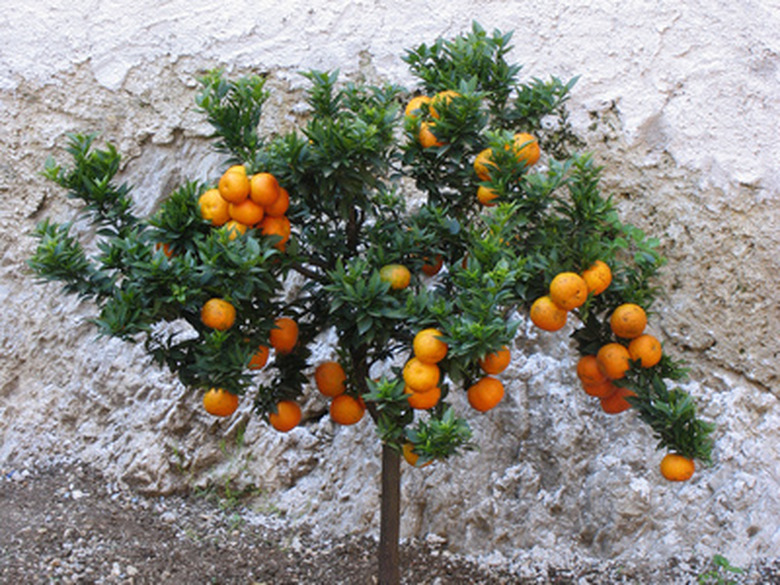Natural Pesticides For Citrus Trees
Picking a fresh, ripe citrus fruit straight from your own tree and eating it is an enjoyable experience. Other than a little dirt, there should be nothing on your citrus fruit that prevents you from eating it right off the tree. Using natural pesticides makes it possible to do this without fear of the chemicals you may be putting into your body.
Neem Oil
Neem oil is an extract of the seeds of the neem tree and is an effective and safe insecticide and fungicide, according to Cornell University. While neem oil is relatively new to the United States, it has been used for more than 4,000 years in India, where the neem tree is a native plant. It also works as a growth regulator, killing insects by preventing them from eating and molting to their next stage. Neem oil is not a quick knockdown pesticide, but does have repellent properties.
- Picking a fresh, ripe citrus fruit straight from your own tree and eating it is an enjoyable experience.
- Other than a little dirt, there should be nothing on your citrus fruit that prevents you from eating it right off the tree.
Neem controls immature insects best, and is effective against chewing and sucking insects on citrus, as well as citrus leafminer. As with all horticultural oils, apply neem oil early in the morning or in early evening to avoid leaf burn from the midday heat.
Insecticidal Soap
While not considered a botanical because these soaps are made from plant oils or animal fat, insecticidal soap is still a safe and effective means of natural insect control on citrus.
Insecticidal soap is a contact insecticide, which means it must be sprayed directly onto the insect's body to be effective. It works well on soft-bodied insects, such as aphids, mealybugs and spider mites, but the hard shells of beetles and wasps protect them from its effects.
Because it contains oils, applying only in the early morning or early evening, when it is cooler, helps avoid damage to citrus leaves.
Sulfur
Sulfur was one of the first pesticides used and is still in use today. Available as a liquid, dust, paste or wettable powder, it is used to control thrips, mites and psyllids on a variety of fruit and vegetable crops, including citrus.
- Neem controls immature insects best, and is effective against chewing and sucking insects on citrus, as well as citrus leafminer.
- While not considered a botanical because these soaps are made from plant oils or animal fat, insecticidal soap is still a safe and effective means of natural insect control on citrus.
While sulfur is nontoxic to mammals, it is a skin and eye irritant. Using sulfur in hot, dry weather may damage plants. Mixing sulfur with any other pesticides or applying within 20 to 30 days of horticultural oil applications will cause significant citrus leaf damage.
